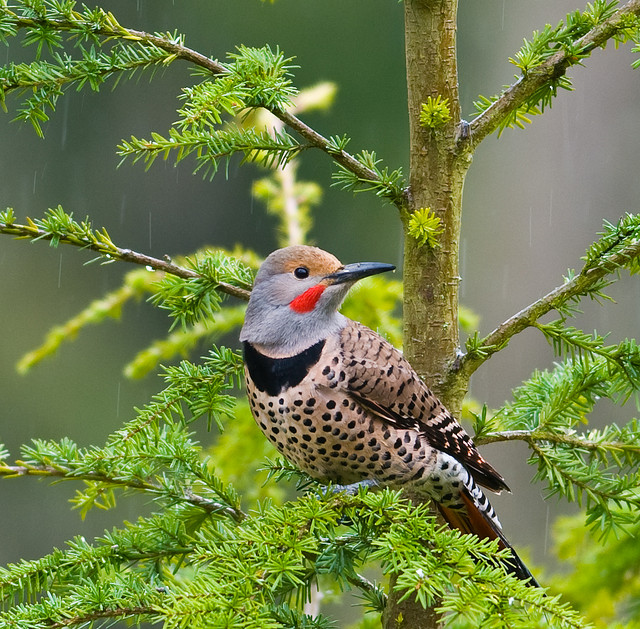Originally published Friday, January 24, 2014 at 8:02 PM By Tom WatsonSpecial to NWhomes
 Bird watching and bird feeding have taken off in and around Seattle during the past couple of decades, partly because of the area’s variety of appealing birds.
Bird watching and bird feeding have taken off in and around Seattle during the past couple of decades, partly because of the area’s variety of appealing birds.
Enjoying nature without messing with it too much has never been easy for humans. But we can rise to that challenge right in our own backyard through our relationship with birds.
Bird watching and bird feeding have taken off in and around Seattle during the past couple of decades, partly because of the area’s variety of appealing birds. Even Seattle’s new mayor, Ed Murray, is an avid bird-watcher.
Attracting birds to our yard provides sustenance for the birds and enjoyment for us. Like the traditional doctor’s oath, we just need to make sure we “do no harm.”
Winter welcome
Birds may need a little help finding food and water this time of year, so lend them a lifeline.
Water is the easiest to provide. You can reuse a plastic saucer or a plastic or metal lid or container. Place it on the ground with rocks or branches around it, so birds can perch and drink while staying dry. They don’t want to get their feathers wet when it’s cold.
Don’t let the birds’ water stay frozen solid for very long. Bring the water container in when it’s freezing, and set warm water out during the day.
An easy way to provide food for birds in winter is to have native plants in the yard with berries that the birds like. The Seattle Audubon Society recommends snowberry, huckleberry, elderberry, mountain ash and honeysuckle. Non-natives such as cotoneaster and pyracantha will also draw birds to your yard.
Year-round haven
Keep water accessible for birds all year. Change the water every three days, or more regularly if it gets soiled by birds or debris.
Scrub your birdbath occasionally with an old toothbrush, using a solution of equal parts water and white vinegar. Rinse with plain water.
You may want to set out birdseed during winter, spring or fall, especially if you lack berries in your yard. You don’t need to fill bird feeders in the summer because most birds can find abundant insects.
To attract hummingbirds in summertime, use native plants as well as nonnative annuals such as salvia that boast the brightly-colored flowers that they like. Your local garden store can recommend the best varieties. With a container on your deck that has one of those annuals, you can sit and watch hummingbirds just a few feet away.
Safe flight
Bird feeders and birdbaths should be thoroughly cleaned twice a year. The Seattle Audubon Society recommends soaking feeders for an hour in a solution of one cup of bleach to one gallon of water.
Position your feeders and birdbaths so cats can’t easily pounce on birds. Don’t use pesticides in your yard.
One of the greatest hazards to birds is colliding with windows. If birds continually hit a certain window, try moving houseplants away from the window. Birding-supply stores, such as the Seattle Audubon store (seattleaudubon.org) and the Wild Birds Unlimited chain (wbu.com), sell anti-collision window decals.
Unwelcome guests
Public Health — Seattle & King County recommends not leaving birdseed in a feeder overnight to avoid attracting rats. The exception is Nyjer (also called thistle) seed, which attracts a few specific species of birds but generally not rats or other critters.
Suet feeders in particular are rat magnets. They hold cakes or balls of mixed seeds. Rats will do their own bird imitation and leap as high as 8 feet to get to a suet feeder. If you store birdseed other than Nyjer in your basement or garage, use a metal container — rats will chew through plastic.
Whether you live in the city, suburbs or backwoods, seeing an Oregon Junco or hummingbird or one of their feathered friends in your yard can make your day. Set up your yard for birds, and you’ll make their day better, too.
Tom Watson is project manager for King County’s Recycling and Environmental Services, and EcoConsumer is his biweekly column. He can be reached at tom.watson@kingcounty.gov, 206-477-4481 or via KCecoconsumer.com.
 Facebook
Facebook
 X
X
 Pinterest
Pinterest
 Copy Link
Copy Link
